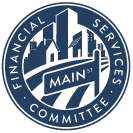House Financial Services Committee Advances Dodd-Frank Reform Bill

The House Financial Services Committee yesterday favorably reported the Financial Choice Act (The CHOICE Act, H.R. 10), which would repeal and replace a number of provisions of the Dodd-Frank Wall Street Reform Act. The bill includes several provisions that could impact the rules governing HFA lending programs and ways of financing them.
The Committee advanced the CHOICE Act on a strictly party-line vote of 34-26. During the markup, Republicans argued that the legislation would remove burdensome financial regulations that have reduced credit availability and hampered economic growth. Democrats countered that the bill would cripple key consumer protections and curtail the federal government’s ability to avoid another financial crisis. Committee Democrats offered a number of amendments, including several to reverse the bill’s changes to the Consumer Financial Protection Bureau (CFPB), but all were rejected on party-line votes.
House leadership has not announced if or when the House of Representatives will consider the CHOICE Act, though Hensarling has suggested the House may vote on it in late May or early June. NCSHA is currently putting together an analysis summarizing those provisions of the bill that could impact HFAs and their programs. We will distribute it when it is available. A section-by-section summary of the bill is available on the Financial Services Committee website. The following summary describes some of the bill’s major provisions:
New Rulemaking Standards and Procedures
The CHOICE Act would amend the rulemaking process for federal financial regulatory agencies, including the Securities and Exchange Commission (SEC), Federal Housing Finance Agency (FHFA), CFPB (which the bill renames the Consumer Law Enforcement Agency), Office of the Comptroller of Currency (OCC), Federal Deposit Insurance Corporation (FDIC), Federal Reserve Board of Governors, and National Credit Union Association (NCUA). Specifically, the bill would require them to consider several factors when proposing and finalizing new regulations, including identifying the need for the regulation and the regulatory objective; analyzing the adverse impacts regulated entities and other market participants could experience; and assessing all anticipated direct and indirect costs and benefits of the regulation.
The bill requires the agencies to analyze their existing regulations within one year of the CHOICE Act’s enactment and repeat such an analysis every five years. SEC would also have one year to ensure that the Municipal Securities Rulemaking Board (MSRB) conducts similar analyses.
The legislation would also give Congress veto power over major financial regulations. Federal financial agencies would be required to report on proposed rules to Congress and the Government Accountability Office (GAO). If a rule is estimated to have an annual economic impact of $100 million or more, it could not take effect unless Congress passes a joint resolution of approval within 70 legislative days of the agency submitting its report to Congress and GAO. Congress would also be able to pass joint resolutions of disapproval to stop regulations with an impact below $100 million a year, but such rules would not require congressional approval before going into effect.
In addition, the FDIC, FHFA, NCUA, and OCC would all be subject to the congressional appropriations process. These agencies currently receive their funding through independent streams, usually fees on regulated entities. The non-monetary related functions of the Federal Reserve, including funding for CFPB, would also be subject to congressional appropriations.
Reforming CFPB
The CHOICE Act would also restrict the powers of the Consumer Financial Protection Bureau (CFPB), which oversees much of the mortgage lending industry. The bill would rename CFPB the Consumer Law Enforcement Agency (CLEA) and limit its authority to enforcing current consumer protection laws. The bill would specifically prohibit CLEA from writing new consumer protection rules, exerting supervisory authority over financial firms, enforcing fair lending laws, and publishing CFPB’s consumer complaint database. CLEA would be headed by a single director, the same model that now applies to the CFPB. Unlike current law, the President would be authorized to remove the CLEA director at will (currently, the President can only remove the CFPB director for cause).
Changes to Mortgage Rules
The bill also includes the following adjustments to federal mortgage regulations:
• Expands the minimum interest rate and loan balances that chattel mortgages must meet in order to be considered as high-cost mortgage loans. The purpose of this provision is to encourage manufactured housing lending by exempting more loans from the regulatory obligations that come with originating high-cost mortgages.
• Broadens the definition of “qualified mortgage” to include loans that are held in portfolio by the loan’s original creditor.
• Excludes fees for affiliated business arrangements from being included in the “points and fees” calculation used to determine whether a loan meets the “qualified mortgage” definition.
In addition to the changes described above, the CHOICE Act would implement a number of changes to federal financial regulations and would allow financial institutions to exempt themselves from certain federal regulations if they are able to meet minimum capital standards.

